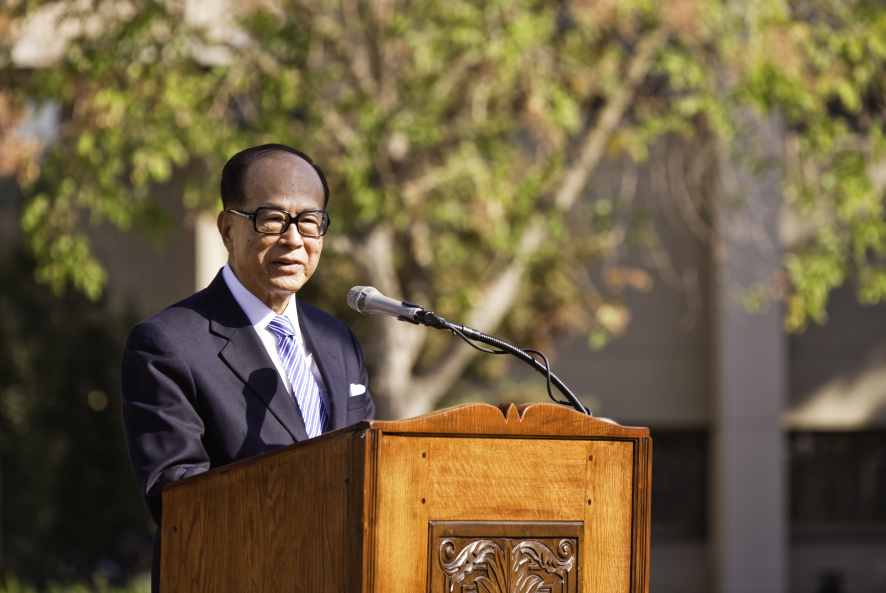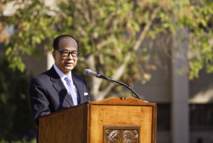He has sold 16 billion dollars-assets in China and transferred the money to Europe, arguing that it is more profitable. The largest deal was the sale of the Hong Kong Pharmaceutical via AS Watson & Co. ($ 5.7 billion for 25% stake in the company), and the biggest new acquisition - O2, the second largest telecommunications company in the United Kingdom (15.8 billion dollars).
In addition, Li, whose state was estimated at 24.8 billion dollars by Forbes, got rid of real estate in China amounting to billions of dollars. He managed to do this before the collapse of the Chinese real estate market in 2014.
There would never be a better moment for the Hong Kong tycoon. There was a decline in the Chinese economy since the beginning of 2015. Over the years, Li was able to reduce his current income in China down to 30% and increase revenues in Europe to 42%.
Chinese authorities are dissatisfied with this step. Liaowang Institute, closely connected with the state news agency "Xinhua", published an article entitled "Do not let Li Ka-shing leave" on September 12. Lo Tyanhao, the author, writes: "We all know that China's real estate sector and political power are closely related. It is impossible to do business in the field of real estate without political power. So I am afraid that just going away was not a wise solution".
Yet perhaps, Li Ka-shing transferred assets from China and Hong Kong for this reason. Now, he does not have to worry about anything, because he have no real estate in China.
- It seems that even personalities like Li Ka-shing feel a lack of acumen in front of the new political princes in mainland China, - said Edward Chin of a Hong Kong pro-democracy group “2047 Hong Kong Monitor”.
Chin also said that the growing influence of the Chinese Communist Party in Hong Kong discourages businessmen. Businesspeople are giving their preferences to Singapore, Cayman Islands – they are registering firms there and are holding assets abroad.
That's what Li Ka-shing did. He united two of his conglomerates (Hutchison Whampoa Cheung Kong Holdings) in the company CK Hutchison Holdings and registered it in the Cayman Islands.
The last trick in this strategy was the merger of Power Assets Holding with Cheung Kong Infrastructure (CKI) and withdraw their shares on the Hong Kong stock exchange quotations. As CKI is part of CK Hutchison, it will also be under the jurisdiction of the Cayman Islands in the future.
source: theepochtimes.com
In addition, Li, whose state was estimated at 24.8 billion dollars by Forbes, got rid of real estate in China amounting to billions of dollars. He managed to do this before the collapse of the Chinese real estate market in 2014.
There would never be a better moment for the Hong Kong tycoon. There was a decline in the Chinese economy since the beginning of 2015. Over the years, Li was able to reduce his current income in China down to 30% and increase revenues in Europe to 42%.
Chinese authorities are dissatisfied with this step. Liaowang Institute, closely connected with the state news agency "Xinhua", published an article entitled "Do not let Li Ka-shing leave" on September 12. Lo Tyanhao, the author, writes: "We all know that China's real estate sector and political power are closely related. It is impossible to do business in the field of real estate without political power. So I am afraid that just going away was not a wise solution".
Yet perhaps, Li Ka-shing transferred assets from China and Hong Kong for this reason. Now, he does not have to worry about anything, because he have no real estate in China.
- It seems that even personalities like Li Ka-shing feel a lack of acumen in front of the new political princes in mainland China, - said Edward Chin of a Hong Kong pro-democracy group “2047 Hong Kong Monitor”.
Chin also said that the growing influence of the Chinese Communist Party in Hong Kong discourages businessmen. Businesspeople are giving their preferences to Singapore, Cayman Islands – they are registering firms there and are holding assets abroad.
That's what Li Ka-shing did. He united two of his conglomerates (Hutchison Whampoa Cheung Kong Holdings) in the company CK Hutchison Holdings and registered it in the Cayman Islands.
The last trick in this strategy was the merger of Power Assets Holding with Cheung Kong Infrastructure (CKI) and withdraw their shares on the Hong Kong stock exchange quotations. As CKI is part of CK Hutchison, it will also be under the jurisdiction of the Cayman Islands in the future.
source: theepochtimes.com



















